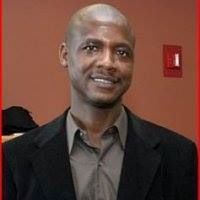 by Alagi Yorro Jallow.
by Alagi Yorro Jallow.
Fatoumatta: The Gambia’s septuagenarian politicians never leaves the political scene. They may be old, very old, even dying, but the burning zeal to serve us never leaves them. Even when the whole world knows they are as stale as yesterday’s baked bread, they would instead class themselves as vintage wine – the older, the better. They are like a creature called a salamander. It holds on to whatever tree it clings to, even in death. It seeks, too, to defy nature, regenerating its dead organs.
Fatoumatta: Former President Jimmy Carter is almost 94 years; retired in public life, and still lectures in a community college like some ex-American government officials who earn their living by giving lectures on a series of subjects that fancy them from one college to the other. Some are even faculty members of some universities. I know of Condolezza Rice and Susan Rice, both senior officials in the American government they have gone back to the classroom to teach. What is an exception about two of Gambia’s former female vice presidents and former ministers as well as other senior government officials not go to the University of the Gambia classrooms like their colleagues in other countries to help teach and share their respective experiences and knowledge to young folks? Why would they (Fatoumatta Jallow Tambajang) want to depend on political patronage looking for a luxurious appointment.?
I know of former President Bill Clinton and former First Lady Hillary Clinton, whose major pre-occupations now, apart from their charity work via Clinton Foundation, is all about giving lectures, well-paid speaking engagement for-from one place to the other churning profits out of their courses and writing books. Why can’t our political leaders and retired public servants do the same?
Former Iranian belligerent President and strongman Ahmedinejad have gone back to the classroom to impart knowledge to young people and also writing daily OPEDs on Iranian newspapers and paid for his services.
What do most Gambian ex-government leaders and stale politicians do? The majority of them do not leave the scene. They always want to be involved in the affairs of every successive government so they can remain materially relevant and lobbying for board appointments and nominations to International organizations. Perhaps, some of them do not have much upstairs. You can see that through the reflections of their period in power, they do not have much upstairs that they can give much since they do not read and do not have the discipline to go to apply themselves to the classrooms.
Fatoumatta: More so, government money is easy to get and feed fat on. So, instead of laboring themselves to be more useful to society through some other means, they activate their taps in government for patronage. Moreover, that is it.
Fatoumatta: Loyalty in this part of the Gambia is mostly sustained by political patronage. Once the patronage stops, loyalty shifts; in my considered opinion, President Barrow would not have failed if he employed the best of parameters to choose who would work with him. Capable hands carried out the instances where he excelled. I want to believe President Barrow hired his staff using more of political patronage rather than strength and competence. Unfortunately, when it gets to getting the work done, it is the competence that matters. Party loyalty or” “sebourou” is of less material significance.
Fatoumatta: stale Gambian politicians and retired public servants enjoy speaking on behalf of the Gambia’s elite class of politicians and public policy influencers. They will support their aspiration and that of their family only. These stale politicians and retired public servants mainly provide a window to the inner recesses of every leaders’ mind. How they see themselves; how they regard us — bloody electorates; what they think about the Gambia; In a tribute to a Korean war veteran, Winfrey Terry, United States’ General Dwight D. Eisenhower summed up a state of stale politician and retired politicians’ life and their remaining private life, declaring that “What counts is not necessarily the size of the dog in a fight… it is the size of the fight in the dog.” The Gambia’s class of stale politicians and old retired public servants appears forever hung on the nation’s neck. The undoing of all who have engaged them has been the assumption that they are heads of broomsticks. We fail, continuously, to see that they are not individuals; that they are a family and will always put more than enough
toughness in every fight to guarantee a win, for themselves, for one another.
So, it is true: “soldiers in battle do not fight for what some president says
on TV, they do not fight for mom, (for) apple pie, (for) the…flag…they fight
for one another.”
Fatoumatta: A leader’s ability to hire his staff is also an essential ingredient that determines whether the leader will succeed or fail. One day I will write a book on this. There is nothing wrong with appointments, but for political patronage, which gives the appointees and their followers some sense of belonging and exclusiveness in governance, it is unacceptable.

